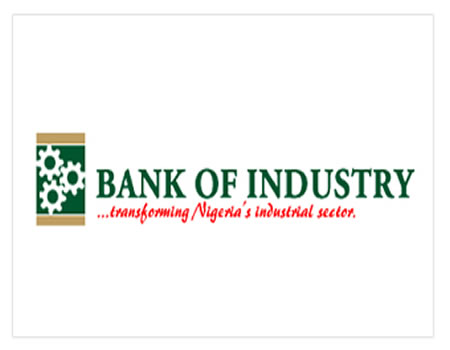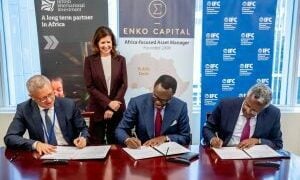The Bank of Industry (BoI) has unveiled a bold new strategy aimed at empowering over 12 million Nigerian artisans and technicians, describing them as the bedrock of inclusive economic growth and the future of the country’s industrial development.
Speaking at the 2025 Nigerian Artisans Leadership Summit in Abuja, the managing director of BoI, Dr. Olasupo Olusi, said the bank recognises the crucial role artisans play in driving grassroots enterprise and national transformation. He emphasised that the new strategy is designed to tackle systemic challenges in the informal sector and unlock its untapped potential.
Dr. Olusi, who was represented at the event by the executive director, Public Sector and Intervention Programmes, Mabel Ndagi, stated, “The Bank of Industry views Nigeria’s over 12 million artisans and technicians not as marginal participants, but as the foundation of a thriving industrial economy. You are the engine of real economic transformation.”
The summit, themed: “Unlocking the Inherent Potential of Nigerian Artisans and Technicians,” brought together artisan group leaders, development partners, representatives of government ministries, and key stakeholders. The discussions focused on the challenges confronting artisans and technicians, while mapping out strategies to formalise and support their economic activities.
According to Olusi, “This theme speaks directly to a bold vision for Nigeria—a vision where talent is not wasted due to lack of support, where enterprise is not stifled by limited access, and where informal skills are not excluded from the opportunities of a growing economy. It reflects our belief that every Nigerian deserves a fair shot at success, regardless of background or location.”
He lamented the numerous barriers that continue to hinder the productivity and growth of artisans across the country. These include limited access to affordable finance, lack of research and development support, outdated tools and equipment, inadequate training infrastructure, poor business structures, and low participation in export markets.
“These are not isolated problems—they are systemic issues that require deliberate, structured, and sustained intervention,” he said. “We cannot continue to build our economy while neglecting the hands that build it. The Nigerian artisan is not a peripheral player in our story; they are the story.”
To address these challenges, Olusi disclosed that the bank is anchoring its 2025–2027 Corporate Strategy on six interlinked thematic pillars, which he described as the framework for a new era of inclusive industrial growth.
“First, we are strengthening Micro, Small and Medium Enterprises (MSMEs) across all sectors,” he said. “Second, we are promoting youth empowerment and skills development, because the future belongs to the skilled. Third, we are expanding opportunities in the digital economy to ensure no one is left behind in the technological transformation.
“Fourth, we are advancing climate resilience and sustainability initiatives to protect the livelihoods of future generations. Fifth, we are investing in critical infrastructure to unlock the full value of local enterprise. And sixth, we are ensuring gender inclusion in all our interventions so that women artisans and entrepreneurs have equal access to resources, training, and opportunity.”
Olusi stressed that these strategic pillars are not just theoretical concepts or bureaucratic categories, but practical tools for real-world impact.
“These focus areas are not just bureaucratic categories—they are lenses through which we are reimagining support for artisans and grassroots entrepreneurs,” he said.
He reiterated BoI’s mission as a development finance institution committed to providing both financial and advisory support to Nigerian enterprises that sustain local economies and catalyse national growth.
“Our vision as a development finance institution is to transform Nigeria’s industrial landscape by empowering the enterprises that power this nation,” he stated. “At the heart of this vision are artisans and grassroots entrepreneurs like you.”
In a stirring call to action, Olusi reminded participants that true development cannot be imported, outsourced, or imposed from above—it must be built from within.
“Development cannot be outsourced or imported,” he declared. “It must be built by hand, by skill, by passion, and by purpose. That is what artisans represent. That is what BoI supports. That is the future we must shape together.”
He further assured artisans of BoI’s commitment to walking with them on this journey, not just through funding, but through access to training, modern tools, market linkages, and mentorship opportunities.
The Artisan Leadership Summit, according to Olusi, marks another milestone in BoI’s wider mission to deepen financial inclusion, promote sustainable livelihoods, and drive the transformation of Nigeria’s informal sector into a structured, competitive, and dynamic engine of industrial growth.
“We must never forget,” he concluded, “that the story of Nigeria’s development will not be written in boardrooms alone. It will be written in workshops, in open markets, in roadside stalls, in mechanic villages, and tailoring sheds—anywhere Nigerians are working with skill and determination to build a better life. That is where the real work is. That is where BoI is.”





